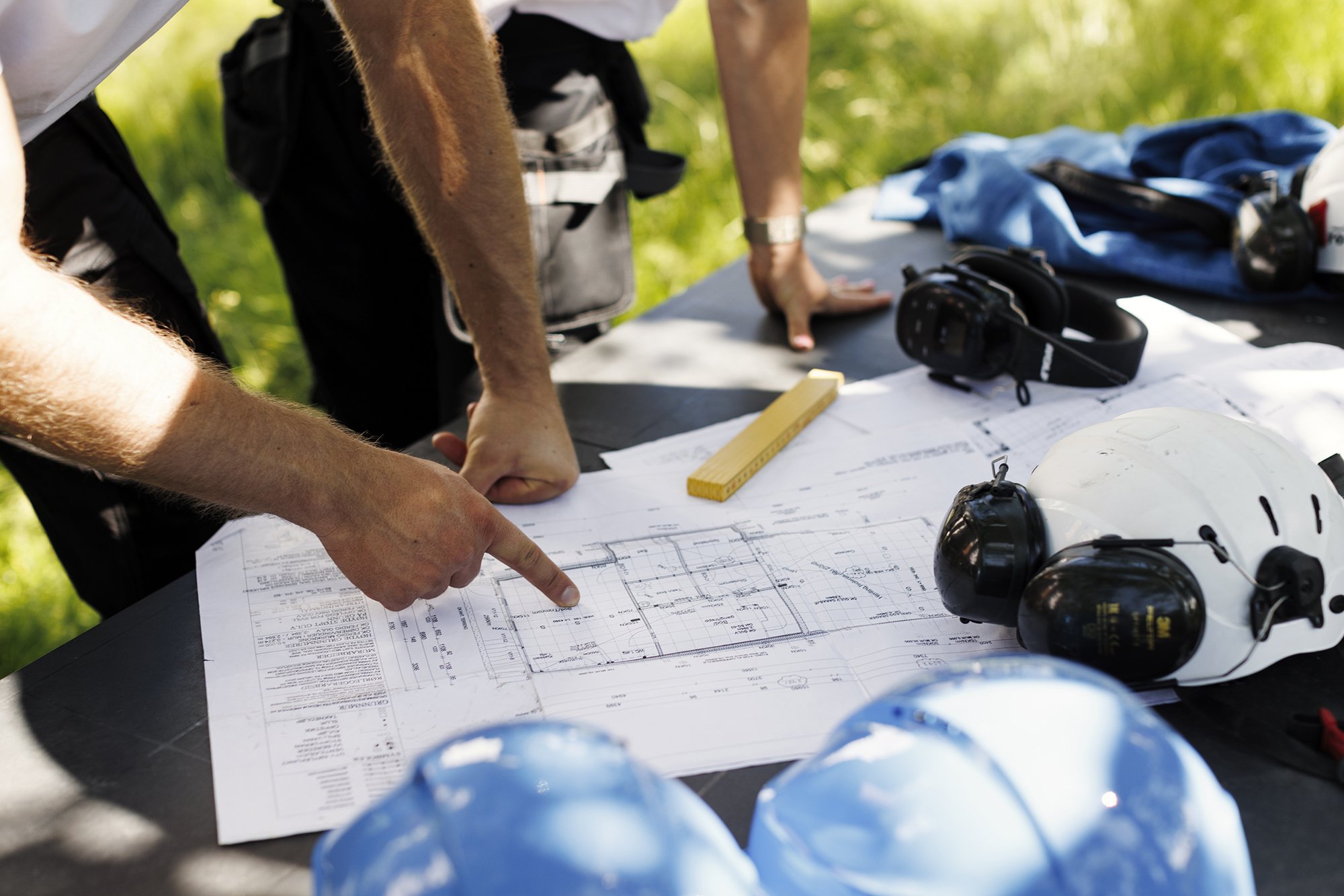8 Effective Steps to Become Good at Project Planning for Construction
📌 Updated June 2025: New information on how a clear progress plan and project plan provide better overview and control in construction projects.
Progress schedule and project plan
In the construction industry, a well-developed progress plan and project plan are essential for success. They provide structured guidance on how and when goals will be achieved, and serve as a point of reference for the project team at all times. Below we present 8 steps/tips on how to ensure good project planning.
1. Establishment of framework and mandate
Defining the project's purpose, background and potential benefits is critical to setting a clear direction. Performance and impact targets should be in line with the company's overall strategy. Being able to articulate this clearly provides a solid platform for everyone involved.
Training in project justification and benefit realization provides a deeper understanding of how to link the project to the company's goals. Training related to project planning is recommended. Training can take place both internally and externally, depending on what is suitable for the company.
2. Learn from past experiences
Researching previous construction projects can reveal valuable insights. Conversations with experienced colleagues or analysis of past project data can help identify best practices and potential pitfalls. A planning tool can make it easy to check out previous, completed projects so you can easily review and learn from past experiences.
3. Defining the scope of the project
Clear and specific goals for the project are key to success. This includes defining tasks, quality standards and acceptance criteria. Involving relevant stakeholders early in this process can help ensure a common understanding and expectations. Ensure that all project participants are in agreement and well-informed, as this can end up being crucial to a well-executed project.
4. Using buildit's planning tool " my planner"
My planner from buildit is a modern planning tool designed for both large and small businesses. This tool provides a comprehensive overview of the project's progress at all times, allows you to easily plan activities in a Gantt chart and offers advanced resource management.
With my planner you can:
Plan the project's activities in a Gantt chart.
Manage resources effectively by allocating tasks to team members.
Manage dependencies between activities to ensure everything is performed in the right order.
Generate activities into a progress plan based on estimates, including information such as time spent, estimated cost, associated tasks and documents.
This tool provides project managers with a new and efficient way to monitor project progress, and the progress plan can be easily customized according to needs and preferences.
5. Time planning and task distribution
A realistic schedule is essential to ensure that the project proceeds as planned. It is also important to distribute tasks evenly and take into account dependencies between different tasks. Continuous monitoring and adjusting the schedule as needed is necessary to manage changes effectively. By using a planning tool, you can get a full overview of task and schedule planning and easily see the dependencies between different tasks in your project.
6. Competence and time estimation
To ensure that the project is sustainable and efficient, you need to identify the necessary skills and estimate the time required for each task. This will also help in the decision-making process of whether to use internal resources or utilize external experts. Identifying the required skills and time spent on each task is key to developing a realistic schedule and assessing the use of resources. This ensures cost efficiency and sustainable execution of the project, while minimizing risks and challenges.
7. Budget and cost estimation
A thorough cost estimate is essential to keep the project within the set budget. By using a costing system , one can gain valuable insight into the cost picture of various project activities. This gives project managers and decision makers the necessary information to make well-informed decisions, prioritize resources, and plan cost-effectively throughout the project's life cycle.
8. Documentation of the project plan
Clear and structured documentation ensures that all parties involved have a common understanding of the project's objectives, scope, schedule and budget. This significantly helps to minimize the risk of misunderstandings or errors during implementation, and ensures that everyone is working towards the same goal with a consistent understanding of the project's requirements and expectations.
Project planning in construction projects is a complex process that requires thoroughness, structure and good cooperation between all parties involved. By using buildit's planning tool "myplanner" and following a systematic approach, one can increase the chances of achieving success in the implementation of construction projects at all times. A solid project plan forms the basis for effective design and ensures that the project is in line with the overall goals of the business.
Book a free demo and see how we can streamline your project planning!
How can you become more profitable and efficient through good costing? How to get control of purchasing and supplier offers? You can read more about this in our articles:
Do you need help with project planning?
We offer a solution that gives you full overview and control over the progress schedule of construction projects. Book a free demo or get a no-obligation quote:
Read more about project planning here
